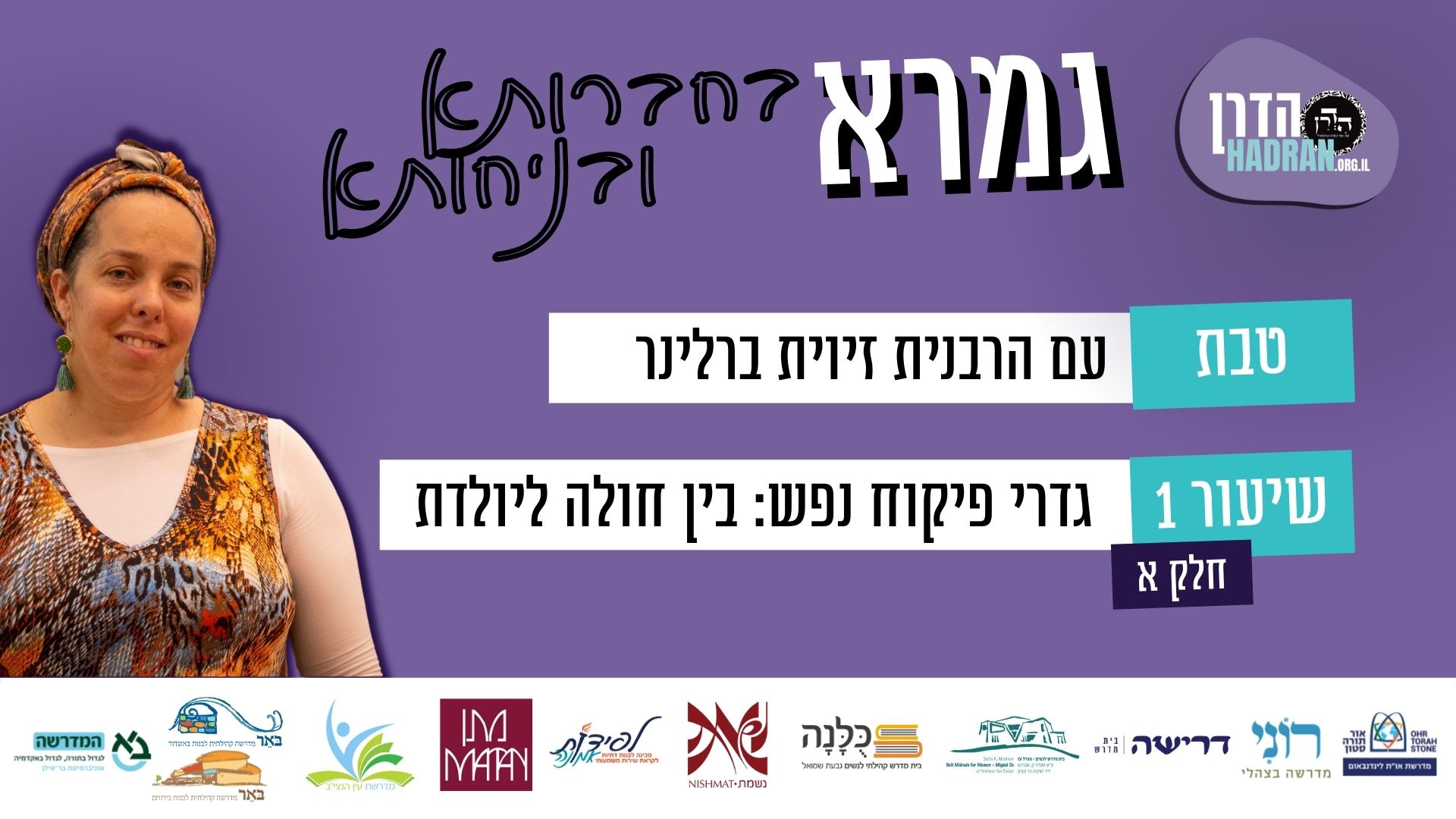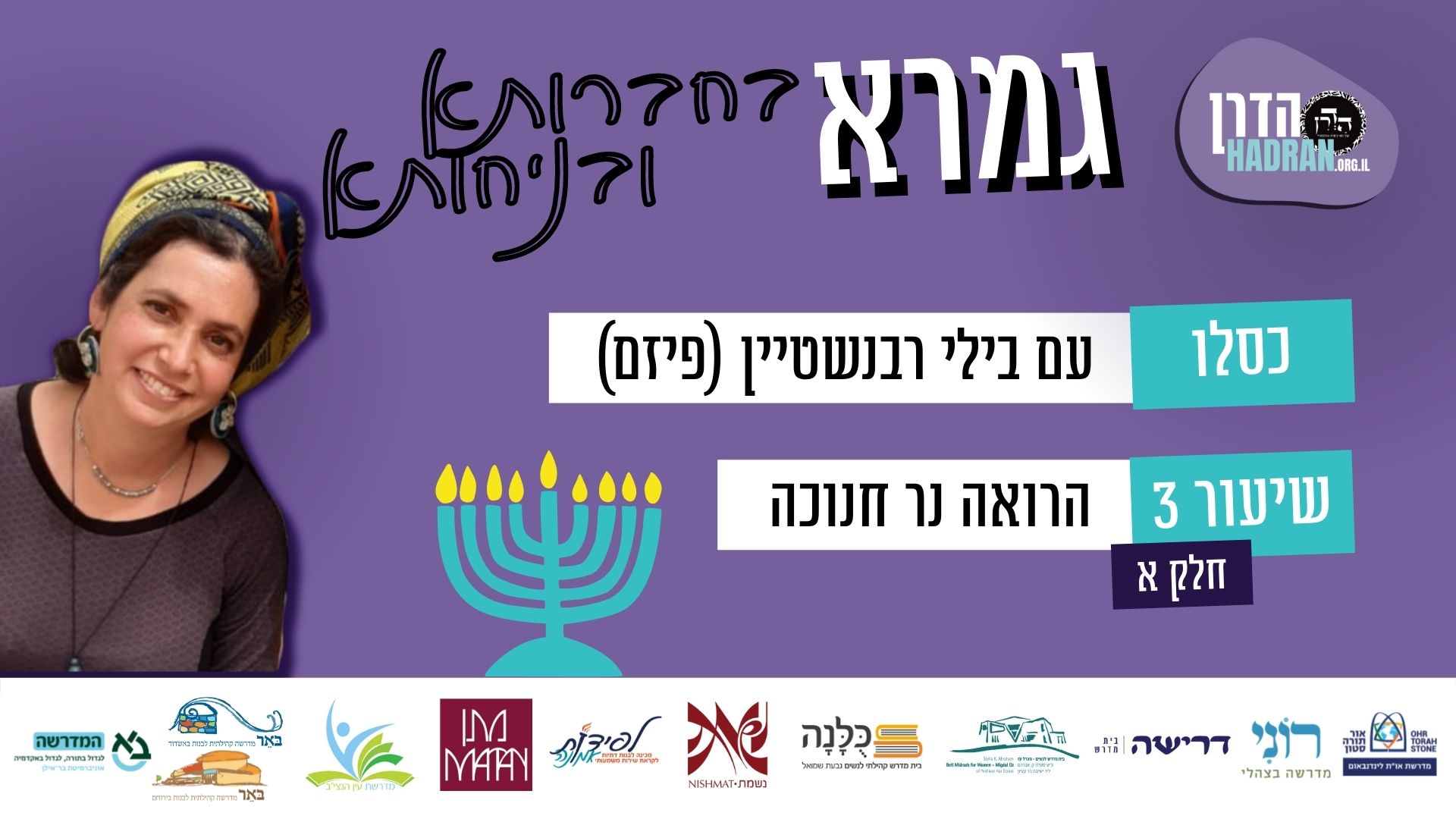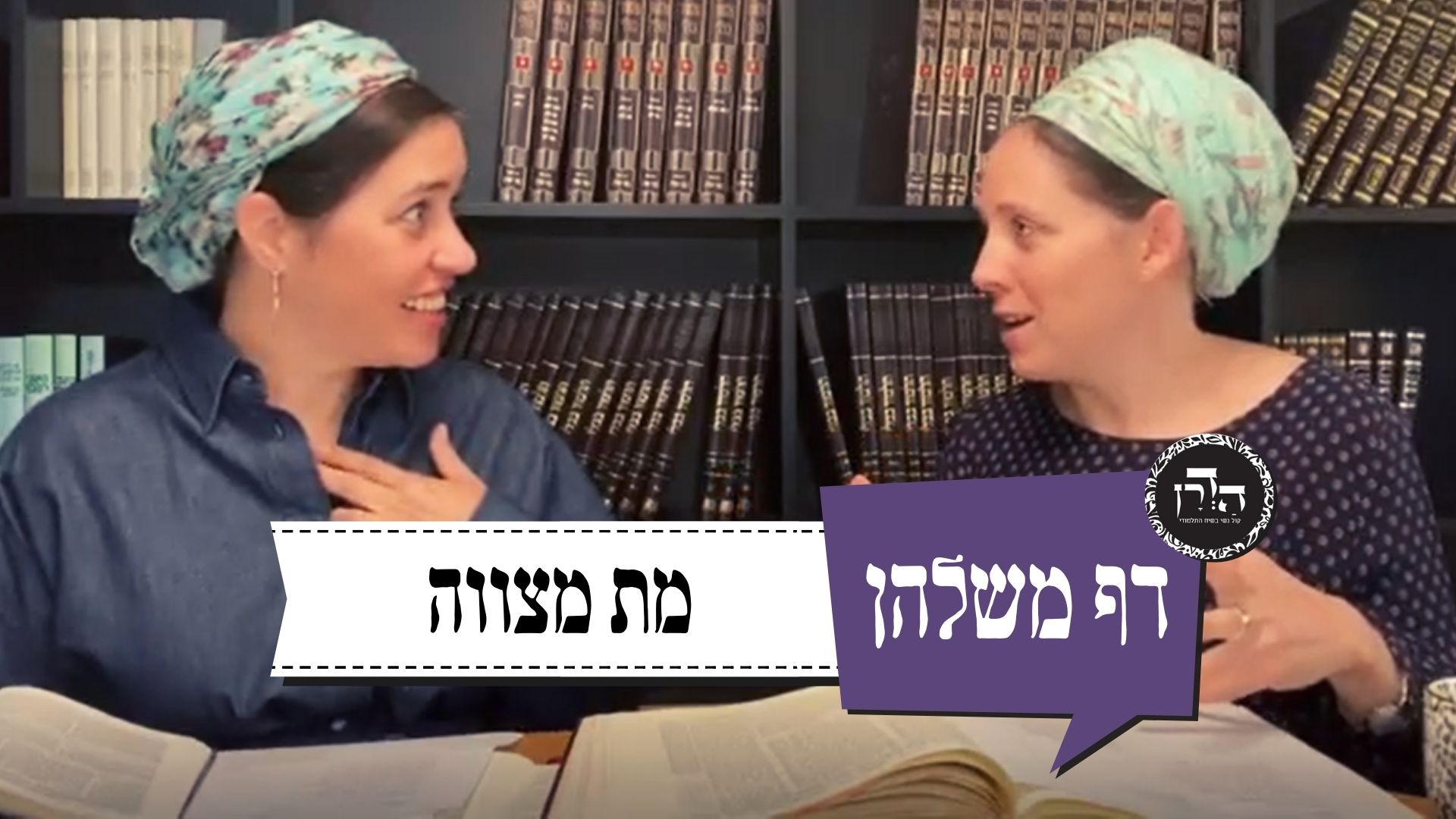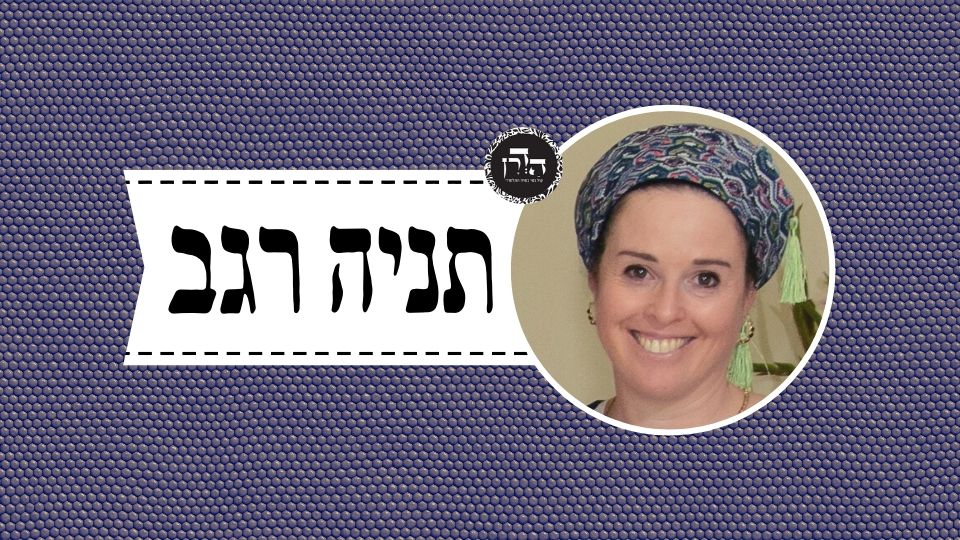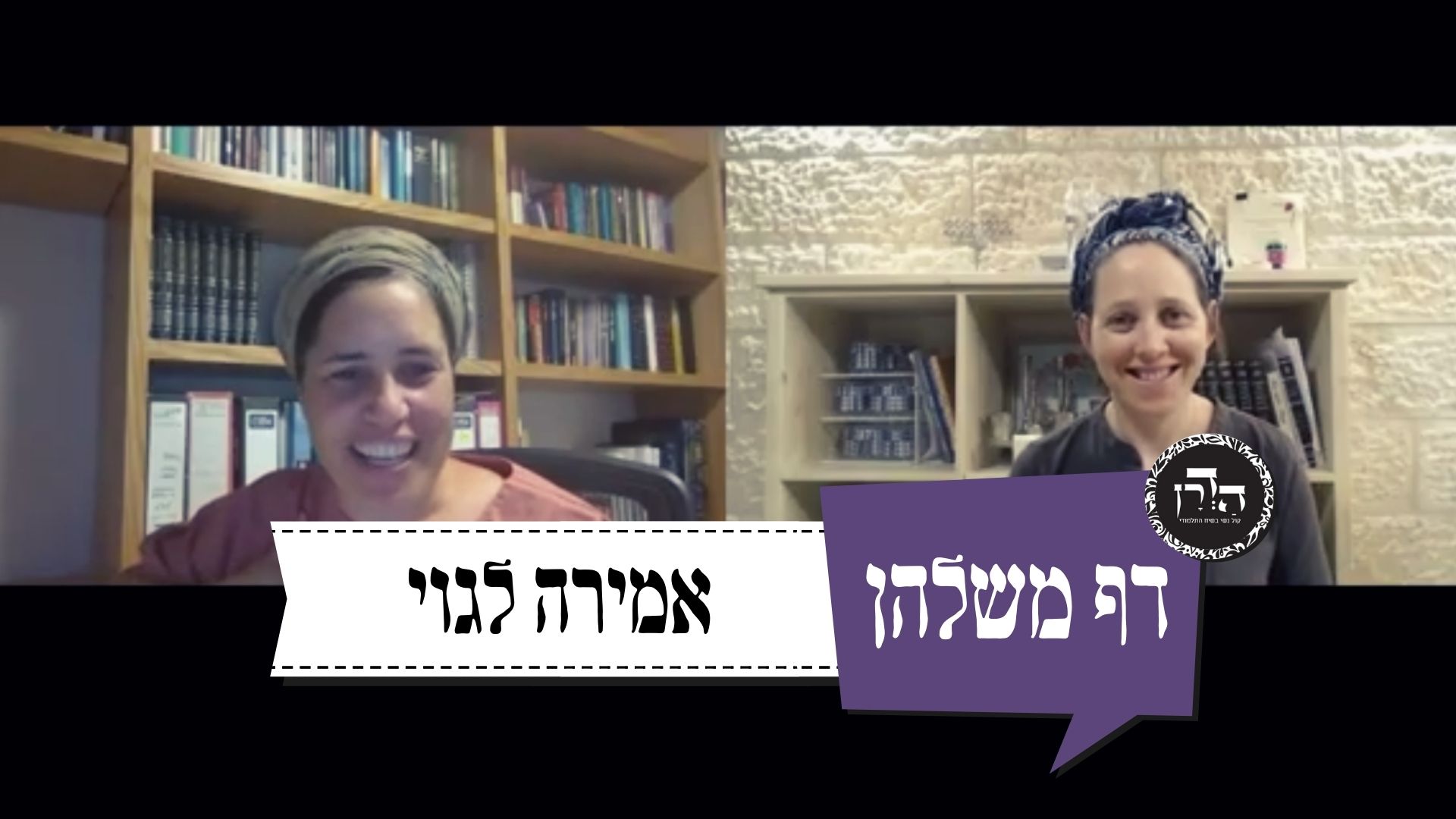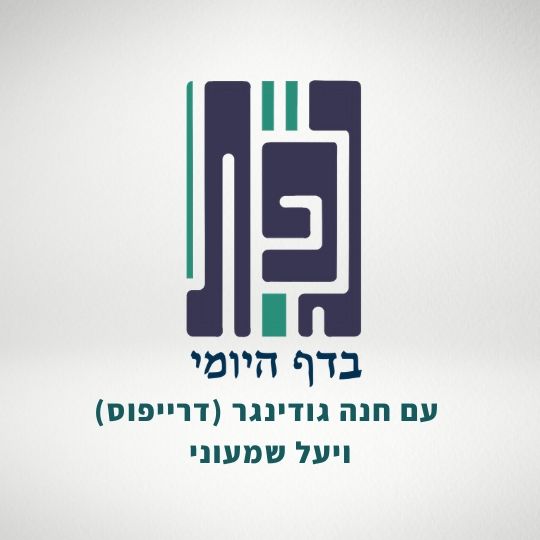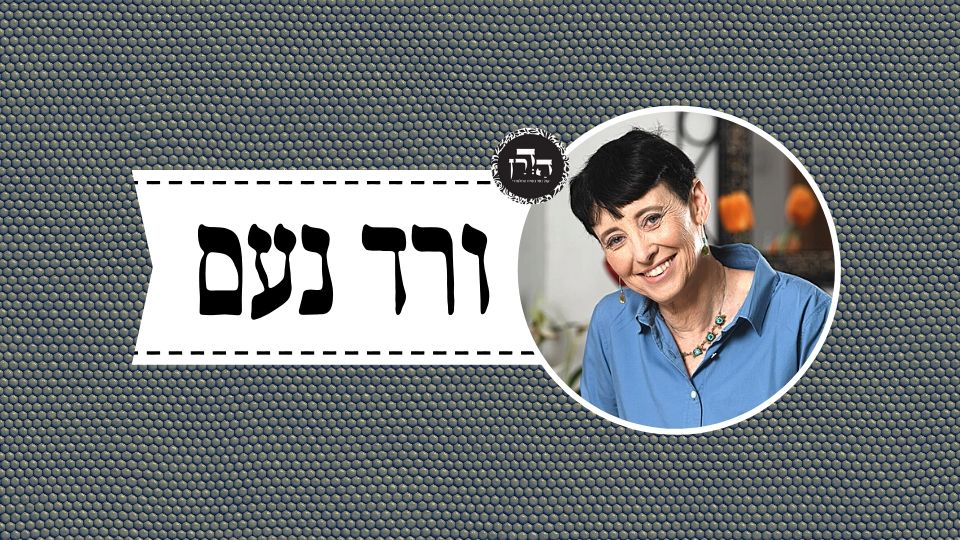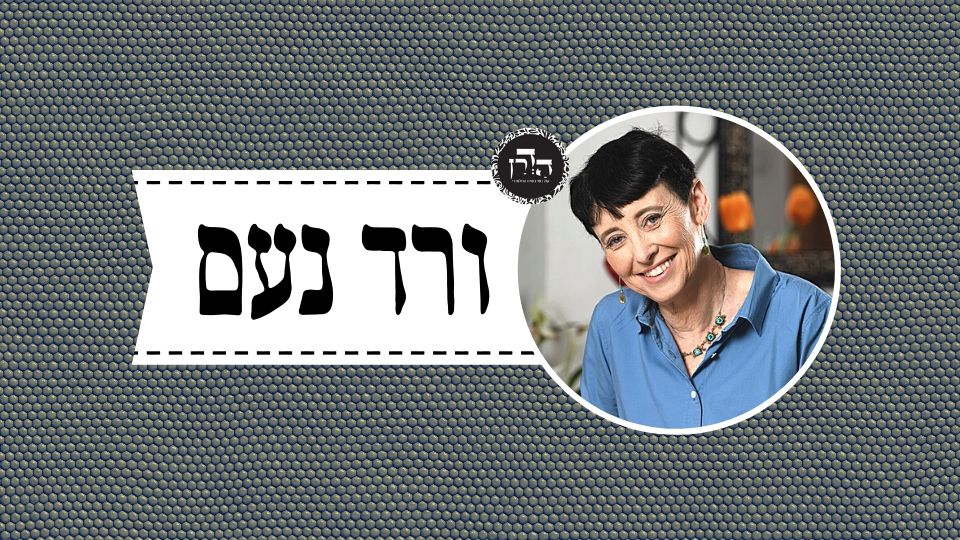שבת סג
בְּיַיִן חַרְדָּלִי? בְּמֵסַב רָחָב, אוֹ בְּמֵסַב קָצָר? בְּחָבֵר טוֹב, אוֹ בְּחָבֵר רָע? אָמַר רַב חִסְדָּא: וְכוּלָּן לִזְנוּת.
on black wine? Sitting on a wide divan or on a narrow divan? With a good friend or a bad friend? And Rav Ḥisda said: And all these allude to promiscuity. These are all euphemisms for different types of women. Well-kneaded bread refers to a woman who is not a virgin; white wine refers to a fair-complexioned woman; a wide divan refers to a fat woman; a good friend refers to a good-looking woman.
אָמַר רַחֲבָה אָמַר רַבִּי יְהוּדָה: עֲצֵי יְרוּשָׁלַיִם שֶׁל קִינָּמוֹן הָיוּ, וּבְשָׁעָה שֶׁהָיוּ מַסִּיקִין מֵהֶן, רֵיחָן נוֹדֵף בְּכָל אֶרֶץ יִשְׂרָאֵל. וּמִשֶּׁחָרְבָה יְרוּשָׁלַיִם נִגְנְזוּ, וְלֹא נִשְׁתַּיֵּיר אֶלָּא כִּשְׂעוֹרָה, וּמִשְׁתְּכַח בֵּי גַזָּא דְּצִימְצְמַאי מַלְכְּתָא.
On the topic of Jerusalem, Raḥava said that Rabbi Yehuda said: The logs of Jerusalem used for fuel were from the cinnamon tree, and when they would ignite them, their fragrance would waft through all of Eretz Yisrael. And since Jerusalem was destroyed, these fragrant logs were buried, and only a sliver the size of a grain of barley remains, and it is located in the treasury of [gazzai] Tzimtzemai the queen.
מַתְנִי׳ לֹא יֵצֵא הָאִישׁ לֹא בְּסַיִיף וְלֹא בְּקֶשֶׁת וְלֹא בִּתְרִיס וְלֹא בְּאַלָּה וְלֹא בְּרוֹמַח. וְאִם יָצָא — חַיָּיב חַטָּאת.
MISHNA: Just as it is prohibited for a woman to carry out certain items unique to a woman into the public domain, the Sages said that a man may neither go out on Shabbat with a sword, nor with a bow, nor with a shield [teris], nor with an alla, nor with a spear. And if he unwittingly went out with one of these weapons to the public domain he is liable to bring a sin-offering.
רַבִּי אֱלִיעֶזֶר אוֹמֵר: תַּכְשִׁיטִין הֵן לוֹ.
Rabbi Eliezer says: These weapons are ornaments for him; just as a man is permitted to go out into the public domain with other ornaments, he is permitted to go out with weapons.
וַחֲכָמִים אוֹמְרִים: אֵינָן אֶלָּא לִגְנַאי, שֶׁנֶּאֱמַר: ״וְכִתְּתוּ חַרְבוֹתָם לְאִתִּים וַחֲנִיתוֹתֵיהֶם לְמַזְמֵרוֹת וְלֹא יִשָּׂא גוֹי אֶל גּוֹי חֶרֶב וְלֹא יִלְמְדוּ עוֹד מִלְחָמָה״.
And the Rabbis say: They are nothing other than reprehensible and in the future they will be eliminated, as it is written: “And they shall beat their swords into plowshares and their spears into pruning hooks; nation will not raise sword against nation, neither will they learn war anymore” (Isaiah 2:4).
בִּירִית — טְהוֹרָה וְיוֹצְאִין בָּהּ בְּשַׁבָּת.
With regard to women’s ornaments, they added that a garter placed on her leg to hold up stockings is pure and cannot become ritually impure as a utensil, and she may even go out with it on Shabbat.
כְּבָלִים — טְמֵאִים וְאֵין יוֹצְאִין בָּהֶן בְּשַׁבָּת.
However, ankle chains, which were also women’s ornaments, can become ritually impure, and she may not go out with them on Shabbat.
גְּמָ׳ מַאי בְּ׳אַלָּה׳ — קוּלְפָא.
GEMARA: The Gemara asks: What is the meaning of the term alla? It means club [kulpa].
רַבִּי אֱלִיעֶזֶר אוֹמֵר תַּכְשִׁיטִין הֵן לוֹ. תַּנְיָא: אָמְרוּ לוֹ לְרַבִּי אֱלִיעֶזֶר: וְכִי מֵאַחַר דְּתַכְשִׁיטִין הֵן לוֹ, מִפְּנֵי מָה הֵן בְּטֵלִין לִימוֹת הַמָּשִׁיחַ? אָמַר לָהֶן: לְפִי שֶׁאֵינָן צְרִיכִין, שֶׁנֶּאֱמַר: ״לֹא יִשָּׂא גוֹי אֶל גּוֹי חֶרֶב״. וְתֶהֱוֵי לְנוֹי בְּעָלְמָא! אָמַר אַבָּיֵי: מִידֵּי דְּהָוֵה אַשְּׁרָגָא בְּטִיהֲרָא.
We learned in the mishna that Rabbi Eliezer says: These weapons are ornaments for him. It was taught in a baraita that elaborates on this subject: The Rabbis said to Rabbi Eliezer: And since, in your opinion, they are ornaments for him, why are they to be eliminated in the messianic era? He said to them: They will not be needed anymore, as it is stated: “Nation will not raise sword against nation” (Isaiah 2:4). The Gemara asks: And let the weapons be merely for ornamental purposes, even though they will not be needed for war. Abaye said: It is just as in the case of a candle in the afternoon. Since its light is not needed, it serves no ornamental purpose. Weapons, too; when not needed for war, they serve no ornamental purpose either.
וּפְלִיגָא דִּשְׁמוּאֵל. דְּאָמַר שְׁמוּאֵל: אֵין בֵּין הָעוֹלָם הַזֶּה לִימוֹת הַמָּשִׁיחַ אֶלָּא שִׁיעְבּוּד גָּלֻיוֹת בִּלְבַד, שֶׁנֶּאֱמַר: ״כִּי לֹא יֶחְדַּל אֶבְיוֹן מִקֶּרֶב הָאָרֶץ״.
And this baraita disagrees with the opinion of Shmuel, as Shmuel said: The only difference between this world and the messianic era is subjugation of the exiles to other kingdoms, from which the Jewish people will be released. However, in other respects, the world will remain as it is, as it is written: “Because the poor will not cease from within the land” (Deuteronomy 15:11). Society will not change, and wars will continue to be waged.
מְסַיַּיע לֵיהּ לְרַבִּי חִיָּיא בַּר אַבָּא. דְּאָמַר רַבִּי חִיָּיא בַּר אַבָּא: כׇּל הַנְּבִיאִים לֹא נִתְנַבְּאוּ אֶלָּא לִימוֹת הַמָּשִׁיחַ, אֲבָל לְעוֹלָם הַבָּא: ״עַיִן לֹא רָאָתָה אֱלֹהִים זוּלָתְךָ״.
However, this baraita supports the opinion of Rabbi Ḥiyya bar Abba who disagrees with Shmuel. As Rabbi Ḥiyya bar Abba said: All of the prophets only prophesied with regard to the messianic era; however, with regard to the World-to-Come it was stated: “No eye sees, God, except You, that which He will do for he that waits for Him” (Isaiah 64:3). What will be in the World-to-Come cannot be depicted even by means of prophecy.
וְאִיכָּא דְאָמְרִי: אָמְרוּ לוֹ לְרַבִּי אֱלִיעֶזֶר: וְכִי מֵאַחַר דְּתַכְשִׁיטִין הֵן לוֹ, מִפְּנֵי מָה הֵן בְּטֵלִין לִימוֹת הַמָּשִׁיחַ? אָמַר לָהֶן: אַף לִימוֹת הַמָּשִׁיחַ אֵינָן בְּטֵלִין. הַיְינוּ דִּשְׁמוּאֵל, וּפְלִיגָא דְּרַבִּי חִיָּיא בַּר אַבָּא.
And some say the disagreement between Rabbi Eliezer and the Rabbis was different. They said to Rabbi Eliezer: Since in your opinion they are ornaments for him, why will they be eliminated in the messianic era? He said to them: Even in the messianic era they will not be eliminated. And that is in accordance with that which Shmuel stated that the world will remain fundamentally the same, and he disagrees with Rabbi Ḥiyya bar Abba.
אֲמַר לֵיהּ אַבָּיֵי לְרַב דִּימִי, וְאָמְרִי לַהּ לְרַב אַוְיָא, וְאָמְרִי לַהּ רַב יוֹסֵף לְרַב דִּימִי, וְאָמְרִי לַהּ לְרַב אַוְיָא, וְאָמְרִי לַהּ אַבָּיֵי לְרַב יוֹסֵף: מַאי טַעְמָא דְּרַבִּי אֱלִיעֶזֶר דְּאָמַר תַּכְשִׁיטִין הֵן לוֹ — דִּכְתִיב: ״חֲגוֹר חַרְבְּךָ עַל יָרֵךְ גִּבּוֹר הוֹדְךָ וַהֲדָרֶךָ״.
Abaye said to Rav Dimi, and some say it was to Rav Avya, and some say Rav Yosef said to Rav Dimi, and some say it was to Rav Avya, and some say Abaye said to Rav Yosef: What is the reason for the opinion of Rabbi Eliezer who said: These weapons are ornaments for him? As it is written: “Gird your sword upon your thigh, mighty one, your glory and your splendor” (Psalms 45:4), indicating that a sword is considered an ornament.
אֲמַר לֵיהּ רַב כָּהֲנָא לְמָר בְּרֵיהּ דְּרַב הוּנָא: הַאי בְּדִבְרֵי תוֹרָה כְּתִיב! אֲמַר לֵיהּ: אֵין מִקְרָא יוֹצֵא מִידֵי פְּשׁוּטוֹ.
The Gemara relates that some time later Rav Kahana said to Mar, son of Rav Huna: Is that really a proof? This verse is written in reference to matters of Torah and should be interpreted as a metaphor. He said to him: Nevertheless, a verse does not depart from its literal meaning, although there may be additional homiletical interpretations.
אָמַר רַב כָּהֲנָא: כַּד הֲוֵינָא בַּר תַּמְנֵי סְרֵי שְׁנִין וַהֲוָה גְּמִירְנָא לֵיהּ לְכוּלֵּיהּ תַּלְמוּדָא, וְלָא הֲוָה יָדַעְנָא דְּאֵין מִקְרָא יוֹצֵא מִידֵּי פְּשׁוּטוֹ עַד הַשְׁתָּא. מַאי קָא מַשְׁמַע לַן? דְּלִיגְמַר אִינִישׁ וַהֲדַר לִיסְבַּר.
Rav Kahana said about this: When I was eighteen years old and had already learned the entire Talmud, and yet I did not know that a verse does not depart from its literal meaning until now. The Gemara asks: What is Rav Kahana teaching us with that statement? The Gemara answers: He comes to teach that a person should first learn and then understand the rationale.
סִימָן ״זָרוֹת״.
Zarot is a mnemonic acronym for Elazar [zayin], Reish Lakish [reish], and their students [vav, tav], the amoraim who interpreted the verse in Psalms cited above
אָמַר רַבִּי יִרְמְיָה אָמַר רַבִּי אֶלְעָזָר: שְׁנֵי תַּלְמִידֵי חֲכָמִים הַמְחַדְּדִין זֶה לְזֶה בַּהֲלָכָה הַקָּדוֹשׁ בָּרוּךְ הוּא מַצְלִיחַ לָהֶם, שֶׁנֶּאֱמַר: ״וַהֲדָרְךָ צְלַח״. אַל תִּקְרֵי: ״וַהֲדָרְךָ״, אֶלָּא ״וַחֲדָדְךָ״. וְלֹא עוֹד אֶלָּא שֶׁעוֹלִין לִגְדוּלָּה, שֶׁנֶּאֱמַר: ״צְלַח רְכַב״. יָכוֹל אֲפִילּוּ שֶׁלֹּא לִשְׁמָהּ — תַּלְמוּד לוֹמַר: ״עַל דְּבַר אֱמֶת״. יָכוֹל אִם הֵגֵיס דַּעְתּוֹ — תַּלְמוּד לוֹמַר: ״וְעַנְוָה צֶדֶק״. וְאִם עוֹשִׂין כֵּן זוֹכִין לַתּוֹרָה שֶׁנִּיתְּנָה בְּיָמִין, שֶׁנֶּאֱמַר: ״וְתוֹרְךָ נוֹרָאוֹת יְמִינֶךָ״.
Rabbi Yirmeya said that Rabbi Elazar said: Two Torah scholars who sharpen one another in halakha; the Holy One, Blessed be He, ensures success for them, as it is written: “And in your majesty [vahadarkha] prosper, ride on, in behalf of truth and meekness and righteousness; and let your right hand teach you tremendous things” (Psalms 45:5). The Sages said:
Do not read “and your majesty [vahadarkha],” rather, by changing some of the vocalization and the letters, read it as and He will sharpen you [veḥidedkha], and ultimately you will be successful.
Moreover, they who act in that manner will rise to prominence, as it is written: “Prosper, ride on.”
I might have thought even if one engages in the study of Torah not for its own sake; therefore, the verse states: “On behalf of truth.”
I might have thought that one would be rewarded with prosperity even if he became arrogant; therefore, the verse states: “Meekness and righteousness.”
And if they do so in the proper manner they merit the Torah that was given with the right hand of the Holy One, Blessed be He, as it is written: “And let your right hand teach you tremendous things” (Psalms 45:5).
רַב נַחְמָן בַּר יִצְחָק אָמַר: זוֹכִין לִדְבָרִים שֶׁנֶּאֶמְרוּ בִּימִינָהּ שֶׁל תּוֹרָה. דְּאָמַר רָבָא בַּר רַב שֵׁילָא, וְאָמְרִי לַהּ אָמַר רַב יוֹסֵף בַּר חָמָא אָמַר רַב שֵׁשֶׁת: מַאי דִכְתִיב ״אֹרֶךְ יָמִים בִּימִינָהּ בִּשְׂמֹאלָהּ עֹשֶׁר וְכָבוֹד״ — אֶלָּא בִּימִינָהּ אֹרֶךְ יָמִים אִיכָּא, עֹשֶׁר וְכָבוֹד לֵיכָּא?! אֶלָּא: לַמַּיְימִינִין בָּהּ — אֹרֶךְ יָמִים אִיכָּא, וְכָל שֶׁכֵּן עוֹשֶׁר וְכָבוֹד. לַמַּשְׂמְאִילִים בָּהּ — עוֹשֶׁר וְכָבוֹד אִיכָּא, אוֹרֶךְ יָמִים לֵיכָּא.
Rav Naḥman bar Yitzḥak said: They are rewarded with the matters stated with regard to the right hand of the Torah. As Rava bar Rav Sheila said and some say Rav Yosef bar Ḥama said that Rav Sheshet said: What is the meaning of that which is written, “Length of days is in her right hand and in her left hand are riches and honor” (Proverbs 3:16)? Is that to say, however, that in her right there is length of days, but there are not riches and honor? Rather, it means: Those who relate to it with the skilled right hand, i.e., who study Torah for its own sake and with proper intentions, there is length of days and all the more so riches and honor for them. Whereas, those who relate to it with the unskilled left hand, there are riches and honor; there is not length of days.
אָמַר רַבִּי יִרְמְיָה אָמַר רַבִּי שִׁמְעוֹן בֶּן לָקִישׁ: שְׁנֵי תַּלְמִידֵי חֲכָמִים הַנּוֹחִין זֶה לָזֶה בַּהֲלָכָה הַקָּדוֹשׁ בָּרוּךְ הוּא מַקְשִׁיב לָהֶן, שֶׁנֶּאֱמַר: ״אָז נִדְבְּרוּ יִרְאֵי ה׳ וְגוֹ׳״ — אֵין דִּבּוּר אֶלָּא נַחַת, שֶׁנֶּאֱמַר: ״יַדְבֵּר עַמִּים תַּחְתֵּינוּ״.
Rabbi Yirmeya said that Rabbi Shimon ben Lakish said: Two Torah scholars who are agreeable to each other when engaging in discussions of halakha, the Holy One, Blessed be He, listens to them, as it is stated: “Then they that feared the Lord spoke [nidberu] one with another; and the Lord hearkened, and heard, and a book of remembrance was written before Him, for them that fear the Lord, and that think upon His name” (Malachi 3:16). And the term speech [dibbur] means nothing other than calm, as it is stated: “He subdues [yadber] people under us” (Psalms 47:4). He will cause the nations to submit to the Jewish people leading to a period of calm. Here too the term dibbur indicates calm and agreeability.
מַאי ״וּלְחוֹשְׁבֵי שְׁמוֹ״? אָמַר רַבִּי אַמֵּי: אֲפִילּוּ חִישֵּׁב לַעֲשׂוֹת מִצְוָה, וְנֶאֱנַס וְלֹא עֲשָׂאָהּ, מַעֲלֶה עָלָיו הַכָּתוּב כְּאִילּוּ עֲשָׂאָהּ.
The Gemara asks: What is the meaning of the phrase in that verse: “And that think upon His name”? Rabbi Ami said: Even if one merely planned to perform a mitzva, and ultimately due to circumstances beyond his control did not perform that mitzva, the verse ascribes him credit as if he performed it.
אָמַר רַב חִינָּנָא בַּר אִידִי: כָּל הָעוֹשֶׂה מִצְוָה כְּמַאֲמָרָהּ אֵין מְבַשְּׂרִין אוֹתוֹ בְּשׂוֹרוֹת רָעוֹת, שֶׁנֶּאֱמַר: ״שׁוֹמֵר מִצְוָה לֹא יֵדַע דָּבָר רָע״.
The Gemara continues in praise of those who perform mitzvot: Rav Ḥinnana bar Idi said: Anyone who performs a mitzva as it was commanded, others do not apprise him of bad tidings, as it is stated: “He who keeps the commandment shall know no evil thing” (Ecclesiastes 8:5).
אָמַר רַב אַסִּי, וְאִיתֵּימָא רַבִּי חֲנִינָא: אֲפִילּוּ הַקָּדוֹשׁ בָּרוּךְ הוּא גּוֹזֵר גְּזֵירָה — הוּא מְבַטְּלָהּ, שֶׁנֶּאֱמַר: ״בַּאֲשֶׁר דְּבַר מֶלֶךְ שִׁלְטוֹן וּמִי יֹאמַר לוֹ מַה תַּעֲשֶׂה״, וּסְמִיךְ לֵיהּ: ״שׁוֹמֵר מִצְוָה לֹא יֵדַע דָּבָר רָע״.
Rav Asi, and some say Rabbi Ḥanina said: Even if the Holy One, Blessed be He, issued a decree, He may abrogate it, as it is stated: “For the word of the King has authority and who may say to Him: What do You do?” (Ecclesiastes 8:4). And, although this indicates that even though the King, God, issued a decree, juxtaposed to it is the verse: “He who guards the commandment shall know no evil thing” (Ecclesiastes 8:5). For one who observes mitzvot properly, the decree is abrogated and he will know no evil.
אָמַר רַבִּי אַבָּא אָמַר רַבִּי שִׁמְעוֹן בֶּן לָקִישׁ: שְׁנֵי תַּלְמִידֵי חֲכָמִים הַמַּקְשִׁיבִים זֶה לָזֶה בַּהֲלָכָה הַקָּדוֹשׁ בָּרוּךְ הוּא שׁוֹמֵעַ לְקוֹלָן, שֶׁנֶּאֱמַר: ״הַיּוֹשֶׁבֶת בַּגַּנִּים חֲבֵרִים מַקְשִׁיבִים לְקוֹלֵךְ הַשְׁמִיעִנִי״.
Rabbi Abba said that Rabbi Shimon ben Lakish said: Two Torah scholars who listen to each other in the discussion of halakha, the Holy One, Blessed be He, hears their voice, as it is stated: “You who dwell in gardens, the companions heed your voice, cause me to hear it” (Song of Songs 8:13).
וְאִם אֵין עוֹשִׂין כֵּן — גּוֹרְמִין לַשְּׁכִינָה שֶׁמִּסְתַּלֶּקֶת מִיִּשְׂרָאֵל, שֶׁנֶּאֱמַר: ״בְּרַח דּוֹדִי וּדְמֵה וְגוֹ׳״.
And if they do not do so, i.e., they do not listen to each other, they cause the Divine Presence to depart from among Israel, as it is stated in the following verse: “Run away, my beloved, and be like a gazelle or a young hart upon the mountains of spices” (Song of Songs 8:14).
אָמַר רַבִּי אַבָּא אָמַר רַבִּי שִׁמְעוֹן בֶּן לָקִישׁ: שְׁנֵי תַּלְמִידֵי חֲכָמִים הַמַּדְגִּילִים זֶה לָזֶה בַּהֲלָכָה הַקָּדוֹשׁ בָּרוּךְ הוּא אוֹהֲבָן, שֶׁנֶּאֱמַר: ״וְדִגְלוֹ עָלַי אַהֲבָה״. אָמַר רָבָא: וְהוּא דְּיָדְעִי צוּרְתָּא דִשְׁמַעְתָּא. וְהוּא דְּלֵית לְהוּ רַבָּה בְּמָתָא לְמִיגְמַר מִינֵּיהּ.
Rabbi Abba said that Rabbi Shimon ben Lakish said: Two individual Torah scholars who, while studying together, cause one another to err [madgilim] in halakha [Tosafot], nevertheless, the Holy One, Blessed be He, loves them, as it is stated: “And his banner [vediglo] over me is love” (Song of Songs 2:4). Rava said: And that is only true in a case where they know the foundation of the law, and their error resulted from the lack of more sophisticated knowledge. And that is only true in a case where they do not have a prominent person in the city from whom they could learn without error.
אָמַר רַבִּי אַבָּא אָמַר רַבִּי שִׁמְעוֹן בֶּן לָקִישׁ: גָּדוֹל הַמַּלְוֶה יוֹתֵר מִן הָעוֹשֶׂה צְדָקָה. וּמֵטִיל בַּכִּיס, יוֹתֵר מִכּוּלָּן.
Rabbi Abba said that Rabbi Shimon ben Lakish said: One who loans another money is greater than one who gives him charity. And the one who places money into a common purse, i.e., one who enters into a partnership with a needy person, is the greatest of them all, since in that case the needy person is not embarrassed when receiving the assistance.
אָמַר רַבִּי אַבָּא אָמַר רַבִּי שִׁמְעוֹן בֶּן לָקִישׁ: אִם תַּלְמִיד חָכָם נוֹקֵם וְנוֹטֵר כְּנָחָשׁ הוּא — חׇגְרֵיהוּ עַל מׇתְנֶיךָ. אִם עַם הָאָרֶץ הוּא חָסִיד — אַל תָּדוּר בִּשְׁכוּנָתוֹ.
Rabbi Abba said that Rabbi Shimon ben Lakish said: Even if a Torah scholar is as vengeful and begrudging as a snake, wrap him tightly around your waist, i.e., keep him close, because you will benefit from his Torah. On the other hand, even if an am ha’aretz is righteous, do not dwell in his neighborhood, as his righteousness does not compensate for the fact that he is ignorant.
אָמַר רַב כָּהֲנָא אָמַר רַבִּי שִׁמְעוֹן בֶּן לָקִישׁ, וְאָמְרִי לַהּ אָמַר רַב אַסִּי אָמַר רֵישׁ לָקִישׁ, וְאָמְרִי לַהּ אָמַר רַבִּי אַבָּא אָמַר רַבִּי שִׁמְעוֹן בֶּן לָקִישׁ: כׇּל הַמְגַדֵּל כֶּלֶב רַע בְּתוֹךְ בֵּיתוֹ מוֹנֵעַ חֶסֶד מִתּוֹךְ בֵּיתוֹ, שֶׁנֶּאֱמַר: ״לַמָּס
Rav Kahana said that Rabbi Shimon ben Lakish said, and some say Rav Asi said that Reish Lakish said, and some say Rabbi Abba said that Rabbi Shimon ben Lakish said: Anyone who raises an evil dog within his home prevents kindness from entering into his home, since poor people will hesitate to enter his house. As it is alluded to in the verse: “To him that is afflicted [lamas],
מֵרֵעֵהוּ חָסֶד״ — שֶׁכֵּן בְּלָשׁוֹן יְוָנִית קוֹרִין לְכֶלֶב ״לַמָּס״. רַב נַחְמָן בַּר יִצְחָק אָמַר: אַף פּוֹרֵק מִמֶּנּוּ יִרְאַת שָׁמַיִם, שֶׁנֶּאֱמַר ״וְיִרְאַת שַׁדַּי יַעֲזוֹב״.
kindness from his friend and awe of the Almighty will leave” (Job 6:14), since in the Greek language they call a dog lamas. Rav Naḥman bar Yitzḥak said: One who keeps an evil dog in his home even divests himself of fear of Heaven, as it is stated at the end of that verse: “And awe of the Almighty will leave.”
הַהִיא אִיתְּתָא דַּעֲיַילָא לְהָהוּא בֵּיתָא לְמֵיפָא. נְבַח בָּהּ כַּלְבָּא, אִיתְעֲקַר וַלְדַּהּ. אֲמַר לַהּ מָרֵי דְבֵיתָא לָא תִּידְחֲלִי, דִּשְׁקִילִי נִיבֵיהּ וּשְׁקִילִין טוּפְרֵיהּ. אֲמַרָה לֵיהּ: שְׁקִילָא טֵיבוּתָיךְ וְשַׁדְיָא אַחִיזְרֵי, כְּבָר נָד וָלָד.
The Gemara relates: A certain pregnant woman who entered to use the oven in a certain house to bake, the dog in that house barked at her, and her fetus was displaced. The owner of the house said to her: Do not be afraid because his teeth have been removed and his claws have been removed. She said to him: Take your goodness and throw it on the thorns. Your encouragement is useless as the fetus has already been displaced and will certainly die.
אָמַר רַב הוּנָא: מַאי דִכְתִיב: ״שְׂמַח בָּחוּר בְּיַלְדוּתֶךָ וִיטִיבְךָ לִבְּךָ בִּימֵי בְחוּרוֹתֶיךָ וְהַלֵּךְ בְּדַרְכֵי לִבְּךָ וּבְמַרְאֵה עֵינֶיךָ וְדָע כִּי עַל כׇּל אֵלֶּה יְבִיאֲךָ הָאֱלֹהִים בַּמִּשְׁפָּט״ — עַד כָּאן דִּבְרֵי יֵצֶר הָרָע, מִכָּאן וְאֵילָךְ דִּבְרֵי יֵצֶר טוֹב.
On a related note, Rav Huna said: What is the meaning of that which is written: “Rejoice young man in your youth, and let your heart cheer you in the days of your youth, and walk in the ways of your heart and in the sight of your eyes; but know that for all these things God will bring you to judgment” (Ecclesiastes 11:9)? Until here, “the sight of your eyes,” these are the words of the evil inclination; from here on, “but know that, etc.,” these are the words of the good inclination.
רֵישׁ לָקִישׁ אָמַר: עַד כָּאן לְדִבְרֵי תוֹרָה, מִכָּאן וְאֵילָךְ לְמַעֲשִׂים טוֹבִים.
Reish Lakish said: Until here, the verse refers to matters of Torah. One is provided the opportunity to study and involve himself in the Torah and rejoice in its innovations; from here on, “but know that, etc.,” it refers to good deeds. One will ultimately stand trial for that which he studied and did not implement.
בִּירִית טְהוֹרָה. אָמַר רַב יְהוּדָה: בִּירִית זוֹ אֶצְעָדָה.
We learned in the mishna that a garter is pure. Rav Yehuda said: Garter; that is a bracelet worn on the arm.
מֵתִיב רַב יוֹסֵף: בִּירִית טְהוֹרָה וְיוֹצֵא בָּהּ בְּשַׁבָּת, וְאִילּוּ אֶצְעָדָה טְמֵאָה הִיא!
Rav Yosef raised an objection: It is stated here that a garter is pure and a woman may go out with it on Shabbat, while a bracelet is ritually impure. It is mentioned explicitly in the verse enumerating the spoils of the war with the Midianites: “And we have brought the Lord’s offering, what every man has gotten, of jewels of gold, armlets, and bracelets, signet rings, earrings, and girdles, to make atonement for our souls before the Lord” (Numbers 31:50). Earlier in that chapter it is written with regard to the spoils: “Purify yourselves on the third day and on the seventh day both you and your captives” (Numbers 31:19). Apparently, a bracelet can become ritually impure.
הָכִי קָאָמַר: בִּירִית תַּחַת אֶצְעָדָה עוֹמֶדֶת.
Rather, this is what Rav Yehuda is saying: A garter on the leg is in place of a bracelet on the arm. It goes around the leg to hold a stocking in place just as a bracelet goes around the arm. However, unlike a bracelet, a garter cannot become ritually impure because it is not an ornament. It simply holds up the stocking.
יָתֵיב רָבִין וְרַב הוּנָא קַמֵּיהּ דְּרַב יִרְמְיָה, וְיָתֵיב רַב יִרְמְיָה וְקָא מְנַמְנֵם. וְיָתֵיב רָבִין וְקָאָמַר: — בִּירִית בְּאַחַת, כְּבָלִים בִּשְׁתַּיִם.
The Gemara relates: Ravin and Rav Huna were sitting before Rav Yirmeya. And Rav Yirmeya was sitting and dozing as the two students conversed. And Ravin sat and said: The difference between a garter and ankle chains is that a garter is worn on one leg, and ankle chains are worn on two legs.
אֲמַר לֵיהּ רַב הוּנָא: אֵלּוּ וְאֵלּוּ בִּשְׁתַּיִם, וּמְטִילִין שַׁלְשֶׁלֶת בֵּינֵיהֶן וְנַעֲשׂוּ כְּבָלִים.
Rav Huna said to him: These garters and those ankle chains are both worn on two legs. And when she wears garters on both legs they place a chain between them, and they become vessels with the legal status equal to that of ankle chains.
וְשַׁלְשֶׁלֶת שֶׁבּוֹ מְשַׁוְּיָא לֵיהּ מָנָא?
And Ravin asked: And does the chain that is connected to it render it a vessel? If a garter without a chain is not considered a vessel, why would the addition of a chain render it a vessel that can become ritually impure?
וְכִי תֵּימָא כְּרַבִּי שְׁמוּאֵל בַּר נַחְמָנִי, דְּאָמַר רַבִּי שְׁמוּאֵל בַּר נַחְמָנִי אָמַר רַבִּי יוֹחָנָן: מִנַּיִין לְמַשְׁמִיעַ קוֹל בִּכְלֵי מַתָּכוֹת שֶׁהוּא טָמֵא — שֶׁנֶּאֱמַר: ״כׇּל דָּבָר אֲשֶׁר יָבֹא בָאֵשׁ״ — אֲפִילּוּ דִּיבּוּר בַּמַּשְׁמָע.
And if you say the reason for this is in accordance with the opinion of Rabbi Shmuel bar Naḥmani, as Rabbi Shmuel bar Naḥmani said that Rabbi Yoḥanan said: From where is it derived that a metal vessel that makes a sound is considered a vessel and can become ritually impure? As it is stated: “Every thing that passes through the fire, you shall make it pass through the fire, and it shall be clean; nevertheless it shall be purified with the water of sprinkling; and all that does not pass through the fire you shall make to go through water” (Numbers 31:23). And the Sages interpret the verse homiletically: Every thing [davar], even speech [dibbur]; in other words, even an object that makes a sound shall pass through fire to become purified because it is a vessel.
בִּשְׁלָמָא הָתָם — קָא בָעוּ לַהּ לְקָלָא, וְקָעָבֵיד מַעֲשֶׂה, הָכָא מַאי מַעֲשֶׂה קָעָבֵיד?
However, this case is not similar. Granted, there, they require the vessel for the purpose of its sound and it performs an action. However, here, what action does the chain perform? Although it creates a sound, the chain serves no purpose.
הָכָא נָמֵי קָא עָבֵיד מַעֲשֶׂה, דְּאָמַר רַבָּה בַּר בַּר חָנָה אָמַר רַבִּי יוֹחָנָן: מִשְׁפָּחָה אַחַת הָיְתָה בִּירוּשָׁלַיִם שֶׁהָיוּ פְּסִיעוֹתֵיהֶן גַּסּוֹת וְהָיוּ בְּתוּלוֹתֵיהֶן נוֹשְׁרוֹת, עָשׂוּ לָהֶן כְּבָלִים וְהֵטִילוּ שַׁלְשֶׁלֶת בֵּינֵיהֶן, שֶׁלֹּא יִהְיוּ פְּסִיעוֹתֵיהֶן גַּסּוֹת וְלֹא הָיוּ בְּתוּלוֹתֵיהֶן נוֹשְׁרוֹת. אִיתְּעַר בְּהוּ רַבִּי יִרְמְיָה, אֲמַר לְהוּ: יִישַׁר, וְכֵן אָמַר רַבִּי יוֹחָנָן.
He said to him: Here, too, the chain is performing a purposeful action, as Rabba bar bar Ḥana said that Rabbi Yoḥanan said: There was one family in Jerusalem whose daughters’ strides were lengthy, and as a result their hymen membranes would fall away. In order to solve this problem they made them ankle chains and they hung a chain between them so that their strides would not be so large and, indeed, their hymen membranes would no longer fall away. Meanwhile, Rabbi Yirmeya awoke from their voices and said to them: Correct, and Rabbi Yoḥanan said likewise.
כִּי אֲתָא רַב דִּימִי אָמַר רַבִּי יוֹחָנָן: מִנַּיִין לְאָרִיג כׇּל שֶׁהוּא שֶׁהוּא טָמֵא — מִצִּיץ.
On the topic of ritual impurity, the Gemara relates: When Rav Dimi came from Eretz Yisrael to Babylonia, he said that Rabbi Yoḥanan said: From where is it derived that a woven fabric of any size can become ritually impure? It is derived from the frontplate [tzitz] of the High Priest, which is considered a vessel despite its small size.
אֲמַר לֵיהּ אַבָּיֵי: וְצִיץ אָרִיג הוּא?! וְהָתַנְיָא: צִיץ כְּמִין טַס שֶׁל זָהָב, וְרוֹחַב שְׁתֵּי אֶצְבָּעוֹת, וּמוּקָּף מֵאוֹזֶן לְאוֹזֶן, וְכָתוּב עָלָיו בִּשְׁתֵּי שִׁיטִין: ״יוֹד הֵא״ לְמַעְלָה, וְ״קוֹדֶשׁ לָמֶד״ לְמַטָּה.
Abaye said to him: And is the frontplate a woven fabric? Wasn’t it taught in a baraita: The frontplate is made like a kind of smooth plate of gold, and its width is two fingerbreadths, and it encircles the forehead from ear to ear. And on it is written in two lines: Yod heh, i.e., the Tetragrammaton, above, and kodesh lamed, i.e., sacred to, below. Thus, the words: Sacred to God, were written on the frontplate. In deference to the name of God, it would be written on the top line, and the words: Sacred to, on the line below.
וְאָמַר רַבִּי אֱלִיעֶזֶר בְּרַבִּי יוֹסֵי: אֲנִי רְאִיתִיו בְּרוֹמִי וְכָתוּב עָלָיו ״קֹדֶשׁ לַה׳״ בְּשִׁיטָה אַחַת.
And Rabbi Eliezer, son of Rabbi Yosei, said: I saw it in the Caesar’s treasury in the city of Rome and Sacred to God was written on one line. In any case, since the frontplate is a gold plate, how can it serve as a source for ritual impurity in fabrics?
כִּי סְלֵיק רַב דִּימִי לִנְהַרְדְּעָא שְׁלַח לְהוּ: דְּבָרִים שֶׁאָמַרְתִּי לָכֶם טָעוּת הֵם בְּיָדִי, בְּרַם כָּךְ אָמְרוּ מִשּׁוּם רַבִּי יוֹחָנָן: מִנַּיִין לְתַכְשִׁיט כׇּל שֶׁהוּא שֶׁהוּא טָמֵא — מִצִּיץ. וּמִנַּיִין לְאָרִיג כׇּל שֶׁהוּא שֶׁהוּא טָמֵא: — מֵ״אוֹ בֶגֶד״.
When Rav Dimi ascended to Neharde’a, he sent to the yeshiva students: The statements I said to you with regard to woven fabrics of any size becoming ritually impure regardless of their size, they are my mistake. However, this is what they said in the name of Rabbi Yoḥanan: From where is it derived that an ornament of any size can become ritually impure? It is derived from the frontplate. And from where is it derived that a woven fabric of any size can become ritually impure? It is derived from the verse: “Or a garment or leather or sack; any vessel with which any work is done must be put into water and it shall be unclean until evening, then it shall be clean” (Leviticus 11:32). From the extraneous phrase, “or a garment,” it is derived that any garment, regardless how small, falls into this category.
תָּנוּ רַבָּנַן: אָרִיג כׇּל שֶׁהוּא — טָמֵא, וְתַכְשִׁיט כׇּל שֶׁהוּא — טָמֵא. אָרִיג וְתַכְשִׁיט כׇּל שֶׁהוּא — טָמֵא. מוּסָף שַׂק עַל הַבֶּגֶד שֶׁטָּמֵא מִשּׁוּם אָרִיג.
Similarly, the Sages taught in a baraita: A woven fabric of any size can become ritually impure, and an ornament of any size can become ritually impure. An object that is half woven fabric and half ornament of any size can become ritually impure. And a sack is added to the category of garment; it too is ritually impure due to woven fabric.
אָמַר רָבָא: אָרִיג כׇּל שֶׁהוּא טָמֵא — מֵ״אוֹ בֶגֶד״. תַּכְשִׁיט כׇּל שֶׁהוּא טָמֵא — מִצִּיץ. אָרִיג וְתַכְשִׁיט כׇּל שֶׁהוּא טָמֵא — מִ״כׇּל כְּלִי מַעֲשֶׂה״.
Rava said in explanation of the baraita: A woven fabric of any size is ritually impure as derived from the phrase “or a garment.” An ornament of any size is ritually impure, as derived from the halakhot of the frontplate. A woven fabric and an ornament of any size is ritually impure, as derived from that which is stated: “And Moses and Elazar the priest took the gold from them, all vessels with which labor is done” (Numbers 31:51). Any object that can be utilized for any action falls into the category of: All vessels with which labor is done.
אֲמַר לֵיהּ הָהוּא מֵרַבָּנַן לְרָבָא: הָהוּא בְּמִדְיָן כְּתִיב!
One of the Sages said to Rava: That verse is written with regard to Midian. There it is referring specifically to ritual impurity imparted by a corpse, and how is it possible to derive from that halakhot of ritual impurity in general?
אֲמַר לֵיהּ: גָּמַר
Rava said to him: He derived by means of a verbal analogy



